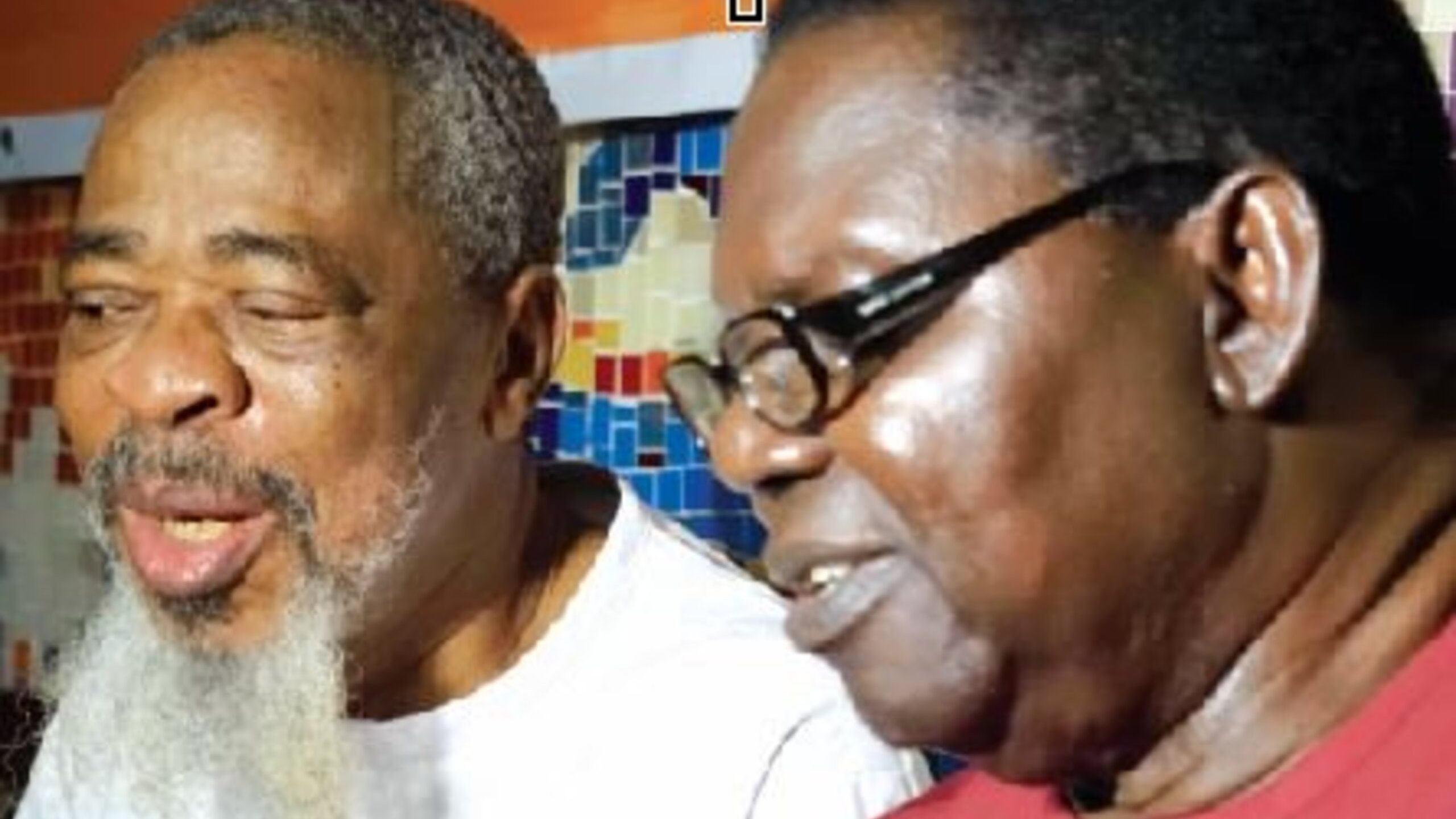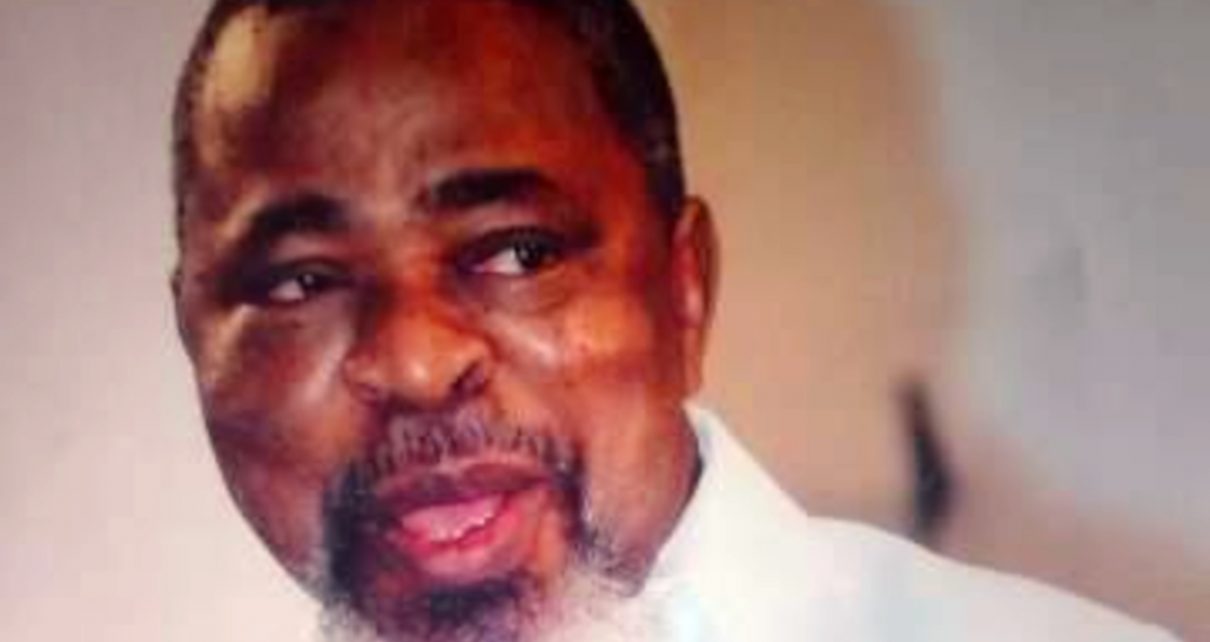Renowned music curator and founder of Evergreen Musical Company, Femi Esho, is 75.
His daughter and CEO, Bimbo Esho, in celebrating this milestone is profuse with adjectives to describe her father:
“Cerebral, charismatic, handsome, humorous, jovial, polished, refined, smooth, suave, urbane, trailblazer.”
Esho is commonly called, Baba Musician, Baba Awon Elere, or Professor of Music.

These sobriquets are not out of place because Femi Esho is undoubtably Nigeria’s largest collector of vintage Nigerian music with a collection of over 150,000 vinyl records, made up of 78rpm, 45rpm and 33rpm plates, hundreds of reel to reel tapes, thousands of cassettes of various music along with historic material like a His Masters Voice ( HMV) record player, various reel to reel machines, various turn tables with the oldest being over 100 years, books and newspaper articles on Nigerian Music, and video recordings of early Nigerian music icons.
Esho’s foray into music curation began in earnest in the nineties when he left Public Relations and Advertising to set up the Evergreen Musical Company Limited.
This was because of his passion for collecting Nigerian folk music, especially of the Highlife genre and numerous requests from many of his friends and top elders in the society.
According to his daughter, Bimbo, the major reason for forming the company was to help ease the tensions and attend to the yearnings of the elderly and other connoisseurs of good heritage music who desired music which had mature content and philosophy.
In 1993, Esho also formed an Evergreen 21-piece band, which performed at highbrow venues like the Metropolitan Club, Ikoyi Club, MUSON Centre, Island Club, Yoruba Tennis Club and for various corporate conglomerates.
Added to these, Femi Esho had presented music programmes in prominent radio and television stations around the country, his longest stint being the famous “Highlife Renaissance” on Raypower, which he presented on Sundays between 4pm and 5pm for a period of about three years.
His last major television programme was a 1-hour insight into Nigerian music from 1914 to 2014.
Femi Esho can be described as a promoter of vintage Nigeria and Ghanaian highlife music; one, who has made it his life’s mission to be a custodian of an era that is being threatened with obliteration.
Being immersed in the music industry, himself, Esho possesses an exhaustive understanding of evergreen music masterpieces that enshrine the best of African culture and tradition.
Born on 29th October 1946 in Ilesa Osun State of Nigeria, at a time when highlife was de rigeur for the growing West African entertainment scene, Femi Esho has since become Africa’s foremost indigenous music revivalist, especially of the highlife music genre.
His passion for the various genres of indigenous music began as a young boy, who quickly realised the power and effect music had on society.
Seeing that music was appreciated universally, cutting across various strata of life – political, religious, tribal, or social, Esho, from the age of 12 began to collect musical works of Nigerian and African musicians.
Bimbo Esho reveals that because of the energy and passion that went with this this self-chosen musical adventure, it was easy for Femi Esho to collect the works of most iconic musicians from Ghana, Benin Republic, South Africa, Togo, and Nigeria.
Such was this passion that he was a regular attendee at many social clubs, dining with different musical giants to study and try to unravel the mystery and magic that music held for them.
For this reason, he could be seen at popular hangouts in Ibadan like Paradise Hotel, Independence Hotel, and Central Hotel.
Femi Esho’s work life began at 22 when he joined the Lagos State Government in 1968, working under Brigadier Mobolaji Johnson, First Military Governor of Lagos State, rising to become a first-class secretary in the governor’s office.
His tour of duty in Lagos State civil service was just seven years, for he soon left for a five-year stint with the biggest Nigerian architectural company at that time – Niger Consultant Architect – with over 35 architects under his supervision.
In 1980, he set up an Advertising/PR Agency, which later metamorphosed into a top-notch printing consultancy, running until the early 90s when he gave his entire life to curating music.
In the words of Bimbo Esho:
“When the history of popular West African Music, especially about the Highlife music genre, is to be truly written, one name that will continually resound and have global acclaim and respect will be Samuel Babafemi Esho, the indefatigable patron and promoter of Evergreen Music, both home and abroad.”


